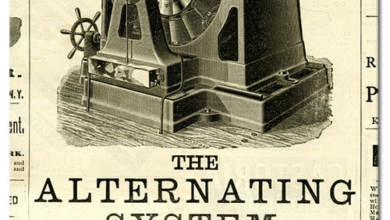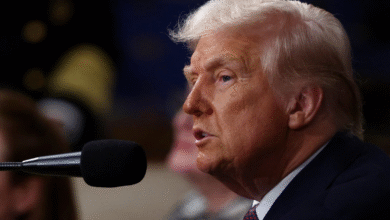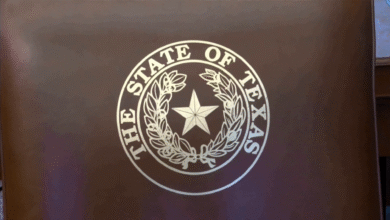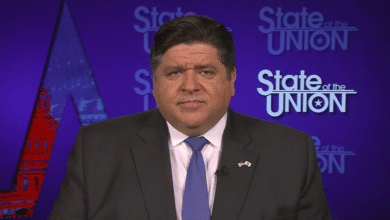Medicaid Cuts Protest: Capitol Police Arrest Demonstrators
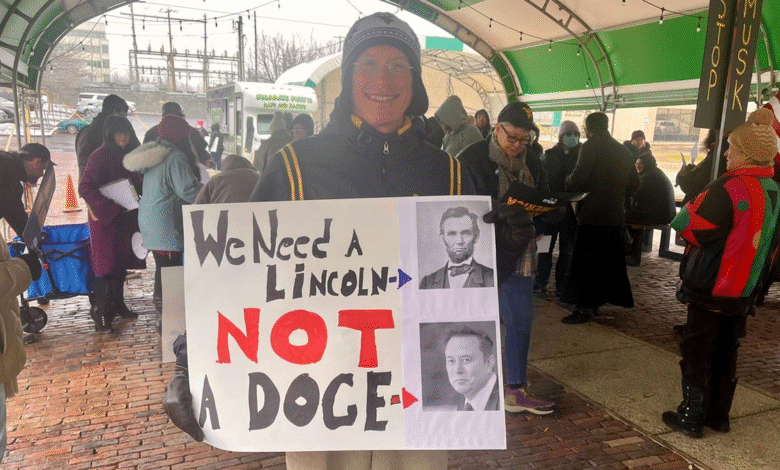
The recent Medicaid cuts protest has captured national attention as demonstrators gathered in Washington, D.C. to voice their concerns over budget proposals that threaten essential healthcare for millions. With at least 33 individuals arrested, including members of American Disabled for Attendant Programs Today (ADAPT), the demonstration underscored the urgency of protecting Medicaid coverage amidst unsettling legislative changes. Protesters, chanting “no cuts to Medicaid,” faced the formidable presence of Capitol Police during their vocal opposition to the Trump budget bill. As these citizens rallied for their rights, they highlighted the dire consequences that Medicaid cuts would impose on vulnerable populations across the nation. This event serves as a stark reminder of the ongoing battle for accessible healthcare and the commitment of advocates fighting to maintain vital support for those in need.
In the heart of the nation’s capital, an assertive demonstration unfolded against proposed reductions in Medicaid, the critical healthcare program serving low-income individuals and families. Advocates came together, many with disabilities, to oppose cuts outlined in the controversial Trump administration budget bill. The event spotlighted not only the financial risks of these proposed changes but also the broader implications for healthcare access within underserved communities. As voices united to reject the decrease in Medicaid funding, the demonstration became a pivotal moment for activists dedicated to safeguarding health benefits for millions. This gathering illustrated the fierce determination of citizens who insist on their right to affordable and comprehensive care, reflecting a growing movement centered around healthcare equity.
Protests Against Medicaid Cuts: A Push for Disability Rights
Recent protests have brought attention to the significant opposition against Medicaid cuts proposed in President Trump’s budget bill. Demonstrators from various organizations, including the American Disabled for Attendant Programs Today (ADAPT), gathered at the Capitol to voice their outrage over the potential loss of coverage for millions. These protests highlight the critical role Medicaid plays in providing support to low-income individuals and the disabled community, ensuring access to necessary medical care and assistance.
Participants chanted slogans such as “no cuts to Medicaid,” drawing attention to the impact these cuts could have on their lives. With Medicaid covering about 70 million low-income Americans, the proposed budget changes have raised alarms regarding the future of health care accessibility. The protest serves as a reminder of the ongoing struggle for equity in health care and the need for policies that protect the most vulnerable populations.
Capitol Police Arrests: A Response to Civil Disobedience
The response from Capitol Police to the Medicaid cuts protest resulted in the arrest of at least 33 individuals for “illegally demonstrating” within congressional buildings. Law enforcement cited crowding and obstructing as reasons for the arrests, highlighting the stringent regulations against protests in these areas. The arrests, including that of protesters in wheelchairs, illustrate the lengths to which advocates are willing to go to fight for their rights and the rights of those they represent.
These arrests serve as a stark reminder of the contentious nature of political discourse surrounding health care reforms. The demonstrators’ actions underscore the urgency felt by communities who rely on Medicaid for their livelihoods. The Capitol Police’s management of the situation raises questions about the balance between maintaining order and allowing free expression of dissent, particularly on issues as critical as health care.
Analyzing the Trump Budget Protest: Implications for Public Health
The protests against the Trump budget reflect broader concerns regarding its implications for public health. By imposing federal work requirements on Medicaid for the first time, this budget proposal threatens to strip coverage from millions of Americans, many of whom are disabled or elderly. Advocates warn that these changes could lead to an increase in health disparities and leave many without the services they desperately need.
Moreover, the opposition to these budget cuts emphasizes the vital role that Medicaid plays in supporting vulnerable populations. As states grapple with the financial implications of these cuts, the protests serve as a powerful reminder that health care is not merely a political issue but a fundamental human right that affects millions directly. Activists are working tirelessly to ensure that their voices are heard amid the political maneuvering.
The Role of Medicaid in Supporting Americans with Disabilities
Medicaid is essential for providing necessary health coverage to millions of Americans with disabilities. The program not only aids in physical health but also ensures access to vital services such as attendant care, which many disabled individuals rely on to live independently. The potential cuts proposed in Trump’s budget could disrupt this support system, making it increasingly difficult for those with disabilities to maintain their quality of life.
Furthermore, the proposed changes could have a ripple effect on the economy. Many disabled individuals contribute to the workforce in meaningful ways when they have access to appropriate medical care and assistance. By cutting Medicaid, the government risks undermining the ability of these individuals to participate fully in society, emphasizing the importance of robust health care access for everyone.
Advocacy and Resistance: The Fight for Medicaid
The protests led by organizations such as ADAPT highlight a growing movement advocating for the protection of Medicaid. As politicians propose deeper cuts and changes to the program, activists are mobilizing to resist these measures. Protests not only raise awareness about the potential consequences of the budget cuts but also foster a sense of community among those affected and their allies.
With each protest and act of civil disobedience, advocates for Medicaid seek to remind lawmakers of their responsibility to protect the most vulnerable constituents. The pushback against proposed budget cuts signifies a broader resistance to systemic changes perceived as harmful to public health and welfare. As more individuals become aware of the stakes involved, the advocacy for Medicaid continues to grow, reinforcing the need for inclusive policies that support all Americans.
Federal Work Requirements: A New Challenge for Medicaid Recipients
The introduction of federal work requirements within Medicaid represents a significant shift in how access to health care will be determined. This proposal is contentious and has raised concerns over how it could exacerbate existing inequalities in health care access, especially for low-income individuals. The work requirements may lead to disenrollment for those who are unable to meet the new criteria, effectively stripping them of their necessary support.
Advocates argue that tying health care access to employment is not only detrimental to those who are disabled or elderly but also fails to consider the complexities of the job market. Many recipients of Medicaid are already navigating challenging circumstances, and adding work requirements could leave many without essential services. The discussions surrounding this topic underscore the need for thoughtful and equitable approaches to health policy.
Public Sentiment on Medicaid Cuts: Voices of Concern
As the debate over Medicaid cuts continues, public sentiment largely appears to reject the proposed changes. Many Americans recognize the importance of Medicaid in ensuring health care access for those in need. Polls and studies reflect growing apprehension about the potential consequences of cutting vital health services, especially amid heightened economic uncertainty.
The voices of protest, amplified by the arrests and civil disobedience seen at the Capitol, resonate deeply with a significant portion of the population. People from all walks of life are beginning to understand how integral Medicaid is not only for individuals but for the social fabric of the nation. As discontent grows, it signals a potential shift in political priorities concerning health care reforms.
Legal Implications of Protests in Congressional Buildings
The arrests made by Capitol Police during the Medicaid cuts protests raise important legal questions regarding the right to assembly and free speech. While laws exist to maintain order within congressional buildings, critics argue that these regulations can sometimes infringe upon citizens’ rights to express their grievances. The tension between upholding these laws and allowing for peaceful protest fires up discussions about civil liberties.
Understanding the boundaries of lawful protest is crucial for activists advocating for critical issues like health care. The legal ramifications of protesting in these spaces can send a chilling message to those who wish to mobilize in defense of their rights. Balancing the need for order with the acknowledgment of citizens’ rights to voice dissent is a challenge that persists in the political landscape.
Future of Medicaid: What Lies Ahead After Protests?
As protests against Medicaid cuts continue to unfold, many are left wondering about the future of the program. The responses from lawmakers and the public will heavily influence Medicaid’s trajectory. If enough pressure is applied via organized efforts, there’s a possibility that key decision-makers may reconsider their stances on cuts and changes to the program.
The outcome of this ongoing resistance could have lasting impacts not only on Medicaid but also on the broader discussion surrounding health care reform in the United States. If protests are successful in raising awareness and prompting action, the future of Medicaid could shift towards a more inclusive approach that prioritizes the needs of vulnerable populations. This makes the continued advocacy and engagement of citizens essential to maintaining health care access for all.
Frequently Asked Questions
What is the impact of Medicaid cuts proposed in the Trump budget on low-income families?
The proposed Medicaid cuts in the Trump budget could significantly affect low-income families who rely on Medicaid for essential health coverage. With over 70 million Americans depending on this program, these cuts threaten to reduce access to necessary healthcare services, potentially leading to poorer health outcomes for those most in need.
Why were Capitol Police arrests made during the Medicaid cuts protest?
Capitol Police made arrests during the Medicaid cuts protest because demonstrators, including members of American Disabled for Attendant Programs Today (ADAPT), were conducting an illegal demonstration inside a congressional building. The protestors were charged with crowding, obstructing, or incommoding as they voiced their opposition to the proposed Medicaid cuts.
What were the main messages expressed by protesters opposing Medicaid cuts?
Protesters opposing Medicaid cuts, including those from ADAPT, highlighted their message by chanting phrases like “no cuts to Medicaid.” Their objective was to bring attention to the potential negative consequences of the proposed cuts in the Trump budget on individuals who rely on Medicaid for health coverage and support.
What legal implications arise from protesting Medicaid cuts in congressional buildings?
Protesting Medicaid cuts in congressional buildings can lead to legal consequences, as it is against the law to demonstrate inside these premises. Individuals like those arrested by U.S. Capitol Police during the Medicaid cuts protest can face charges for crowding, obstructing, or causing disruptions within the building.
How do Medicaid cuts affect Americans with disabilities?
Medicaid cuts could have a devastating impact on Americans with disabilities, as many depend on the program for vital healthcare and support services. The proposed cuts in the Trump budget, especially the introduction of federal work requirements, may jeopardize the ability of disabled individuals to maintain their coverage, thus limiting access to necessary medical care.
What alternate options are available for lawful demonstrations against Medicaid cuts?
While protesting Medicaid cuts inside congressional buildings is prohibited, there are designated areas on Capitol Grounds where individuals can lawfully demonstrate. Protesters are encouraged to utilize these spaces to ensure their voices are heard without facing legal actions.
How many people were arrested during the Medicaid cuts protest at the Capitol?
During the Medicaid cuts protest, U.S. Capitol Police reported arresting at least 34 individuals for illegally demonstrating, including both those in wheelchairs and others advocating against the proposed cuts in President Trump’s budget bill.
What are the systemic risks associated with the proposed Medicaid cuts?
The systemic risks associated with the proposed Medicaid cuts include increased healthcare disparities, loss of coverage for millions, and potential deterioration of public health, especially among vulnerable groups such as low-income and disabled Americans.
| Key Point | Details |
|---|---|
| Protests Against Medicaid Cuts | Demonstrators protested Medicaid cuts proposed in Trump’s budget. |
| Arrests | At least 33 protesters were arrested for illegally demonstrating in congressional buildings. |
| Demonstration Location | The protests occurred in the Hart Senate Office Building and Russell Senate Office Building. |
| Groups Involved | Members of American Disabled for Attendant Programs Today (ADAPT) participated in the protests. |
| Budget Implications | Trump’s budget proposes deep cuts to Medicaid, affecting coverage for over 70 million people. |
| Federal Work Requirements | The budget bill would introduce federal work requirements for Medicaid, potentially threatening coverage for millions. |
Summary
The Medicaid cuts protest highlighted significant concern over the proposed reductions to a vital healthcare program for low-income Americans, rallying hundreds to demonstrate against the Trump administration’s budget bill. The widespread discontent, particularly among vulnerable groups, underscores the critical need for ongoing dialogue and advocacy regarding healthcare access and protections for those relying on Medicaid.

